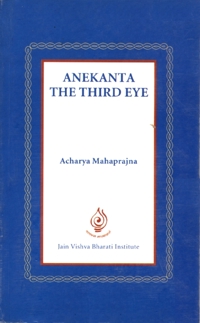
Thomas Alva Edison was a great scientist. It is recognized that he made the maximum number of discoveries. He was studying in school. One day the teacher wrote to his guardians saying, “Your child is dull. He is not fit enough to study. Take him away from school." The child was removed from school. The same child, Edison, became one of the greatest scientists of the world. The main reason for this was that within him, experience-based conscious was aroused. He was able to transgress the limits of the self.
May we understand the limits of the self. When man goes deep into the self, then he moves into the realm of experience and when that happens, a special light bursts into being. A source is revealed from which thousands of rays of truth emerge and fill the entire being with brightness. All darkness vanishes. The one who relies solely on bookish knowledge, relies on others, gives great importance to the limits set by others and is not able to recognize the limits of his self, will always continue to fall. He can never rise above it all. He can never shed the darkness around him. His problems are never solved and get only more complicated. It astonishes me a great deal when I hear that the writer who is able to give happiness and lessons to millions, is himself unhappy. What kind of life is this that a man who entertains millions, goes to bed as a sad man? The one who makes millions laugh is tormented by his familial or personal problems and spends his life trying to put off the embers of sorrow. What kind of life is this!
We cry with one eye and laugh with the other. This situation arises when the root of relativity is perverted. I do not say that you should give up your day-to-day life or your family or give up the gross world or that you should not make any decisions on the basis of the gross world. But it is justified to say that it is beneficial to know the transcendental along with the empirical viewpoint: To accept the relation between the two. The peel and the pulp, both are important. We should accept their link. Accept them as a whole. The fruit's pulp is differentiated only when there is a peel. If there were no peel, then which part would you call the pulp? A fruit without a peel is hard to think of. The peel cannot be rejected. The empirical aspect or the manifested aspect can also not be ignored or rejected.
 Acharya Mahaprajna
Acharya Mahaprajna
